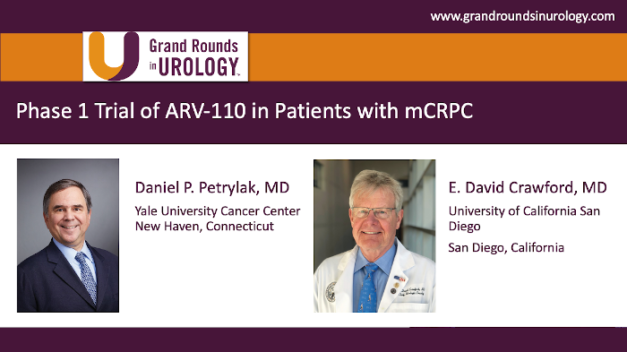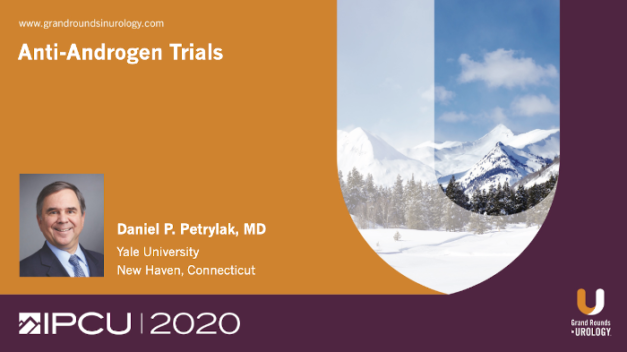Theranostics & Radiopharmaceutical Trials
Daniel P. Petrylak, MD, Director of Genitourinary Oncology, Professor of Medicine and Urology, Co-Leader of Cancer Signaling Networks, and Co-Director of the Signal Transduction Program at Yale University Cancer Center, reviews several studies in which radium-223 is used both alone and in combination with other treatments for prostate cancer. Since radium-223 is an alpha particle, it requires fewer hits to damage DNA, offering an advantage over beta particles. Dr. Petrylak further explains the benefits of theranostics which deliver isotopes directly to the tumor site. He concludes that radium-223 is effective in treating metastatic castration-resistant prostate cancer (mCRPC), but cautions that until potential toxicity levels are better understood, combining radium-223 with either abiraterone or prednisone is not advised.
Read More




